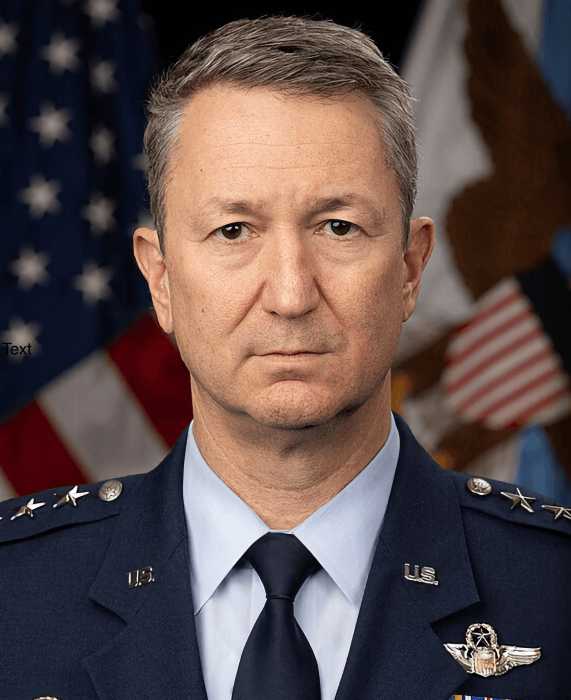Christopher J. Godfrey, an out gay man who served as Iowa’s workers’ compensation commissioner beginning in 2006, won a jury verdict in 2019 of $1.5 million on claims of sexual orientation discrimination and retaliation by Governor Terry Branstad, Branstad’s legal counsel, and the state government. The jury found a violation of the state’s statutory ban on sexual orientation discrimination in employment, and a violation of Godfrey’s constitutional due process rights.
But on June 30, the Iowa Supreme Court reversed the jury verdict, finding that the trial judge should have ruled that the defendants — now-former Governor Branstad, his legal counsel Brenna Findley, and the State of Iowa — were entitled to judgment as a matter of law, and that the judge should not have submitted the case to the jury for decision. Justice Christopher McDonald wrote the opinion for the court.
Godfrey was appointed to a full six-year term as commissioner of Workers’ Compensation for the state of Iowa by Governor Chet Culver, a Democrat, and was confirmed unanimously by the State Senate in 2009. He was openly gay at the time. He had previously received interim appointments to that position beginning in 2006 from prior Governor Tom Vilsack, also a Democrat, and he was reappointed to an interim vacancy by Governor Culver, before receiving the full-term appointment.
In 2010, Republican Terry Branstad, a former Iowa governor who had taken a position as a university president, came out of political retirement and defeated Governor Culver’s bid for reelection. As was customary with a change of administration, his staff notified all commissioners who had been appointed by Branstad’s Democratic predecessors to submit letters of resignation, leaving the decision to the governor-elect whether to continue them in office.
Godfrey refused to submit such a letter, telling Governor-Elect Branstad (in the only in-person meeting he ever had with Branstad) that he was appointed and confirmed for a full six-year term and intended to serve the full term through 2015. Under Iowa law, Governor Branstad could not replace Godfrey on his own initiative, but Godfrey could be removed by the Executive Council of the state, made up of the governor and several other top executive branch officials, for causes specified by statute which were not present in this situation. So Branstad was stuck with Godfrey if Godfrey would not resign.

Upon taking office, Branstad turned his attention to other matters, but at the end of the legislative session on June 30, 2011, he returned to the Godfrey situation, having received complaints about Godfrey’s perceived “anti-business” stance from the leadership of the Iowa Association of Business and Industry (ABI), which is the state’s chamber of commerce, who told Branstad that the commissioner was creating an adverse climate for business in the state. In consultation with his staff, Branstad determined that he could reduce Godfrey’s salary, hoping that would induce him to quit. State law specified a salary range for commissioners and Godfrey was being paid at the top of the range at $112,070. Branstad decided to reduce his salary to the bottom of the range, $73,250, if he rejected another request to resign. Two members of the governor’s staff met with Godfrey to reiterate the governor’s demand for his resignation, which Godfrey refused. He was then told the governor had decided to reduce his salary to the bottom of the statutory range.
Godfrey quickly let others know about his salary reduction, contacted the attorney general seeking possible intervention, and contacted legislators to see if they would intervene. Senator William Dotzler phoned one of Branstad’s aides, saying, “You guys might want to consider the action you’re taking on Chris Godfrey. He is an openly gay man, and that can be an issue down the road.” When Godfrey announced publicly the next day that he was being subjected to sexual orientation discrimination, Branstad claimed that he, the sole decision-maker in reducing Godfrey’s salary, had not known that Godfrey was gay until the day after the salary reduction was communicated to Godfrey, when Godfrey leveled his public accusation.
Godfrey sued the state, Branstad, and other executive branch officials in January 2012, asserting claims under the Iowa Civil Rights Act, which bans employment discrimination because of sexual orientation, and the Iowa Constitution. Before the case came to trial, various pretrial motions came up to the Supreme Court involving immunity claims by particular state officials and the question whether Godfrey could sue for damages against Branstad and other officials on his constitutional claims. One question that did not come up in those proceedings was whether the Iowa Civil Rights Act’s ban on employment discrimination and retaliation applied to a state agency commissioner who was appointed by the governor and confirmed by the Senate for a fixed term.
Much of the focus of the trial, which is described in great detail in Justice McDonald’s opinion, went to the question of whether Branstad personally knew that Godfrey was gay when he took action to pressure Godfrey to resign by reducing his salary. Branstad insisted that he had not known, but evidently the jury did not believe him, relying on testimony from numerous witnesses about how Godfrey’s sexual orientation was known and reported in the press when he was appointed by Vilsack and Culver, was known to the senators who voted to confirm him (and even came up at one point in a confirmation hearing), was known by the lieutenant governor (now Governor Reynolds), who had actually been introduced to Godfrey’s husband, and was known by members of Branstad’s staff and the staff of the ABI.
Godfrey also put in plenty of evidence about the anti-LGBTQ stance of the Iowa Republican Party, about the vicious campaign against members of the Iowa Supreme Court who were denied retention by the voters after they had unanimously ruled in favor of same-sex marriage under the state constitution, and about the party’s platform in Branstad’s election campaign seeking to amend the constitution to overrule the court’s marriage decision and to amend the Civil Rights Act to remove sexual orientation and gender identity as prohibited grounds of discrimination. There was also substantial evidence, which was not contested by the defendants, about the emotional distress Godfrey suffered as a result of the pressure campaign to get him to resign.
At the end of the trial, the defendants moved for judgment as a matter of law, but Jasper County District Judge Brad McCall denied the motion. The jury awarded Godfrey $500,00 in emotional distress damages on his claims against the state for sexual orientation discrimination and retaliation, and $1 million in emotional distress damages against Governor Branstad and one of his aides on Godfrey’s constitutional claims. The defendants appealed to the state Supreme Court.
The court concluded that the trial record showed no direct evidence that Branstad was personally aware that Godfrey was gay. Branstad had served as governor before Vilsack. When he left office, he became president of Des Moines University, an “osteopathic school of medicine,” and, wrote Justice McDonald, “At the time he was hired, Branstad committed to the trustees of the university that he would stay out of and away from politics while serving in the position.” He claimed that he paid no attention to whom Vilsack or Culver was appointing as commissioners, and that he was personally unaware of Godfrey until during his campaign to defeat Culver for re-election, when ABI officials first complained to him about Godfrey’s anti-business bias, but that they did not mention that Godfrey was gay. Indeed, although he was surrounded by people who knew Godfrey was gay, Branstad swore that the first he heard of that was when Godfrey accused him of sexual orientation discrimination after the salary reduction was communicated to Godfrey.
The court decided that all of Godfrey’s evidence on this point was circumstantial, none of it directly showing that Branstad knew Godfrey was gay, and therefore, since Branstad was the sole decision maker on dealing with Godfrey, the case should have been dismissed as a matter of law for lack of evidence of discriminatory motive. The court also rejected the constitutional due process claim, finding no denial of Godfrey’s procedural due process rights.
Dissenting Justice Brent Appel objected to the court substituting its judgment for that of the jury. He agreed with the court’s disposition of the constitutional claim, but pointed out that under the Civil Rights Act a plaintiff can win a discrimination case based on circumstantial evidence, and it was up to the jury to weigh all the evidence and decide whether the defendants violated the statute. Appel conceded that it was possible that a jury could find for Branstad, but taking account of all the evidence, it was also possible that a reasonable jury could decide for Godfrey, and it was inappropriate for an appellate court to make that determination. Contested questions of fact are supposed to be decided by juries, unless it would be impossible for a reasonable jury to resolve such questions in favor of the plaintiff. Appel argued that the evidence about the Republican Party’s anti-LGBTQ stance was relevant to the jury’s determination of the motive for attempting to force Godfrey from his position.
Chief Justice Susan Christensen and Justice Matthew McDermott, while also agreeing with the majority as to the ultimate outcome of the case in favor of defendants, argued in an opinion by McDermott that the claims under the Civil Rights Act should have been dismissed on the ground that Godfrey, as an appointed and Senate-confirmed officer of the state government, was not an “employee” within the meaning of the Act, and thus that the Act’s employment discrimination provisions did not apply to him.
Godfrey did not serve out his full term as commissioner, eventually resigning to take a position in the Obama Administration at the Employees’ Compensation Appeals Board (ECAB), where he continued to serve until January 20, 2021, when he was sworn in to his current position as director of the Office of Workers’ Compensation Programs in the US Department of Labor.
















